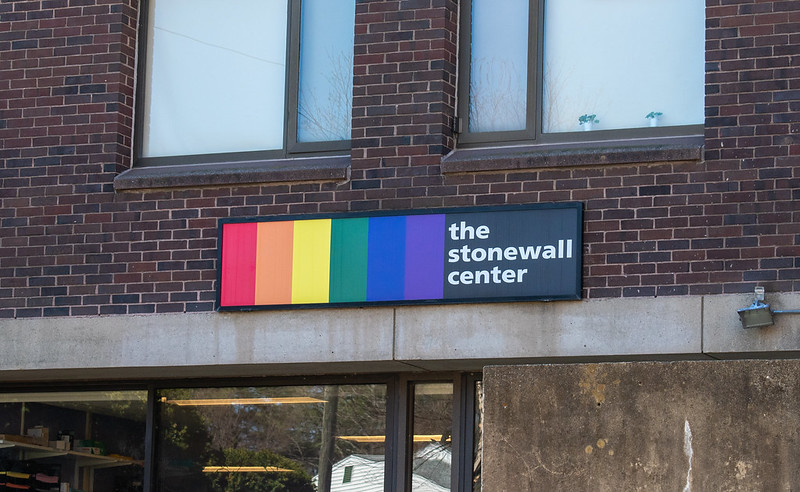On April 6, the University of Massachusetts hosted a lecture by Angela Chen, author of “Ace: What Asexuality Reveals About Desire, Society, and the Meaning of Sex.” The event was sponsored by the Stonewall Center, the LGBTQIA+ resource center at UMass.
The event took place on International Asexuality Day. Asexual people, also known as “aces,” experience little or no sexual attraction.
Genny Beemyn, the director of the Stonewall Center, detailed the organizing process for the lecture. “Last spring, all of the staff at the Stonewall Center helped compile a list of possible speakers for this year, and then we voted on who we would bring,” they said. “Angela Chen was chosen because we thought that many people on campus needed to learn more about asexuality and we wanted the growing number of students identifying as asexual to have a speaker whom they could relate to, who would affirm them and their experiences.”
Chen is currently a senior editor at WIRED. Her book examines asexuality and the role that sexual attraction plays in Western culture. “Ace” explores the issues that aces regularly face and what those conflicts can teach everyone about desire, sexuality and identity.
“Something that brings aces together is the way we don’t really center sexuality in our lives,” Chen said at the start of her talk.
She discussed the lack of knowledge surrounding asexuality, which she referred to as “a state of epistemic injustice.”
“Aces are not allowed to be the authority on our own experience and asexuality,” Chen said.
Chen addressed the importance of ace affirmation, or the identification of actions to make the world more ace friendly. “What does it mean to be ace beyond sex?” Chen asked.
“People treat asexuality as if the entire experience of being ace starts and stops in a romantic, dating, sexual context … in my own personal experience, that’s not true … being ace changes so many parts of your life that have nothing to do with sexual attraction.”
“[My biggest regret] is that I didn’t talk more about ace joy [in my book] … I talked about all the ways it could suck to be ace,” Chen said.
Chen stated that many people think of asexuality as purely a sexuality, but she prefers to see it as more. “When I think about ace, it is a worldview,” Chen said. “I do think that the ace lens and ace thought is about creating more opportunities for connection [but] I worry the work ace folks have already done is not being acknowledged.”
After Chen’s talk, there were opportunities for book signings and a reception for asexual and aromantic members of the Five Colleges.
“People assume that if you’re asexual, anything in the realm of sex and romance is gone,” said sophomore classics and computer science major August Huber, a student staff member at the Stonewall Center and co-president of SpACE+, UMass’s Asexual/Aromantic group.
RJ Guanci, a sophomore natural resource conservation major, noted, “It’s nice to hear from a fellow ace [on] how we’re treated.”
Mia Vittimberga can be reached at [email protected] and followed on Twitter @MiaVittimberga.



















